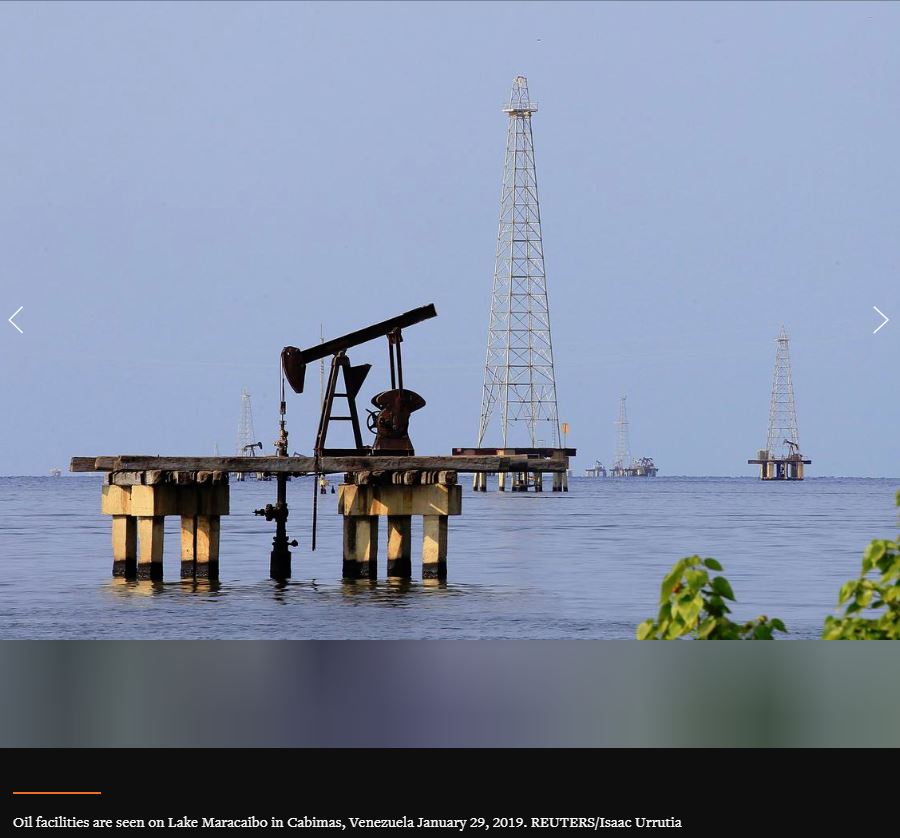
The US government has imposed sanctions on Venezuela’s national oil company Petroleos de Venezuela SA (PDVSA) on Jan. 28 following a determination by US Treasury Sec. Steven Mnuchin, in consultation with US Sec. of State Mike Pompeo, that persons in PDVSA are plundering operations to smuggle drugs and otherwise increase their personal gain.
The Treasury Department’s Office of Foreign Assets Control (OFAC) imposed sanctions and amended nine general licenses held by PDVSA in response to a second executive orderby US President Donald Trump on Jan. 25 following one on Nov. 1, 2018, blocking property of certain persons believed contributing to Venezuela’s increasingly unstable political situation.
The actions came days after the Trump administration and several other countries dismissed the reelection of Venezuelan President Nicolas Maduro as illegitimate and instead recognized National Assembly Leader Juan Guaido, who declared himself interim president.
Trump said the latest executive order addresses actions by persons affiliated with the Maduro regime, including human rights violations and abuses in response to anti-Maduro protests, arbitrary arrest and detention of anti-Maduro protestors, curtailment of press freedom, harassment of political opponents, and continued attempts to undermine the interim president and the national assembly.
The sanctions cover operations of Citgo Petroleum Corp. in Houston, PDVSA’s US refining and marketing subsidiary and its largest downstream unit, as well as the Venezuelan national oil company’s other divisions. US impacts are not certain since the Maduro regime reportedly has been using much of the revenue PDVSA generates to service outstanding loans for other purposes from Russia and China.
In San Antonio, Valero Energy Corp., the largest US independent refiner-marketer with a 3.1 million b/d throughput capacity, said in a Jan. 28 statement that it was reviewing the administration’s announcement, but expects to comply with the sanctions and would reoptimize its crude supply to minimize any resulting impacts.
OFAC said it expects to issue a new set of responses soon to frequently asked questions about the latest moves.
Illustrates oil-geopolitics link
In response, Robbie Diamond, president of Securing America’s Future Energy in Washington, said the latest US sanctions against South America’s biggest oil producer show that geopolitics and oil are inextricably linked.
“Venezuela’s collapsing oil industry, chaotic government, and collusive behavior as part of the [Organization of Petroleum Exporting Countries] cartel has long injected uncertainty and volatility into the oil market,” Diamond said. “As our ongoing dependence on oil harms our economic and national security, we need to advance solutions that enhance US energy security and ultimately reduce our reliance on petroleum for good.”
US Energy Information Administration figuresplace Venezuela’s proved oil reserves in January 2018 at 302 billion bbl. Its crude oil production has fallen to a 30-year low, excluding a drop during a 2002-03 strike, and was 1.4 million b/d in May 2018. “Despite its production declines, Venezuela was still the 12th largest producer of petroleum in the world in 2017,” EIA added.
It said that Venezuela had 1.3 million b/d of domestic refining capacity in 2017, but actual refining capacity a year later was half that amount at an estimate 626,000 b/d. “According to tanker tracking data, Venezuela exported an average of 1.5 million b/d of crude oil in 2017, 10% lower than the 2016 level. In the first quarter of 2018, exports of Venezuela’s crude oil fell to 1.1 million b/d, based on tanker loadings data,” EIA said.



